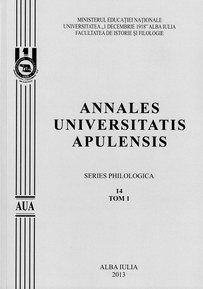Intercomprehension – the avatars of a definition
Intercomprehension – the avatars of a definition
Author(s): Laura CizerSubject(s): Language and Literature Studies
Published by: Universitatea »1 Decembrie 1918« Alba Iulia
Keywords: intercomprehension; multilingualism; language families
Summary/Abstract: Intercomprehension (IC) is a concept that originates in contrastive linguistics and has been a research field ever since the ’90s. The notion has branched out according to the various research projects that took it under study. If the first projects essentially revolved around interlinguistic aspects of IC and IC within language-related families, in recent years IC has spread to other language groups as well, and has equally encompassed interlinguistic, extralinguistic and (inter)cultural dimensions. One research project in particular – REDINTER (the European network of IC) – undertook the challenge of gathering the definitions given by experts, their formulations and reformulations of the concept sometimes conflicting, but confirming an innovative practice with encouraging results however difficult to assess, nevertheless a concept of multiple facets. Therefore, this paper attempts to retrace the first word references and even before the very term was coined, and up to present. It will be pointed out that IC has been practiced from very early times in the ports of Southern Europe among the speakers of family-related languages: a Spanish sailor would speak Spanish to an Italian sailor who would answer back in Italian. There is written proof that, starting with the first medieval fairs at Troyes in Champagne, both the customers and the merchants coming from all over Europe would talk to each other using their native languages. Lately, it has been used in construction-based professions: it was known in France due to the different immigrations of Italians, Spanish and Portuguese builders. Then, as early as 1913 the French linguist Jules Ronjat noted the existence of word pairs that are identical in meaning and also several lexical and syntactic borrowings from one language to the other while studying his son’s simultaneous acquisition of French and German; however, the European political context of that time did not allow for the conceptual development of IC. Moreover, English dictionaries do not include the term, French ones (Le Grand Larousse -1975, 1983, 1992, 2008) do contain entries. Throughout this paper each and every definition provided to this term will be mentioned chronologically and discussed in relation to the previous ones in order to highlight the similarities and differences among them. Finally, the definition belonging to our research team at the Naval Academy of Constanta – involved in the project between 2008-2011– will round up this paper.
Journal: Annales Universitatis Apulensis. Series Philologica
- Issue Year: 14/2013
- Issue No: 2
- Page Range: 451-456
- Page Count: 6
- Language: English

